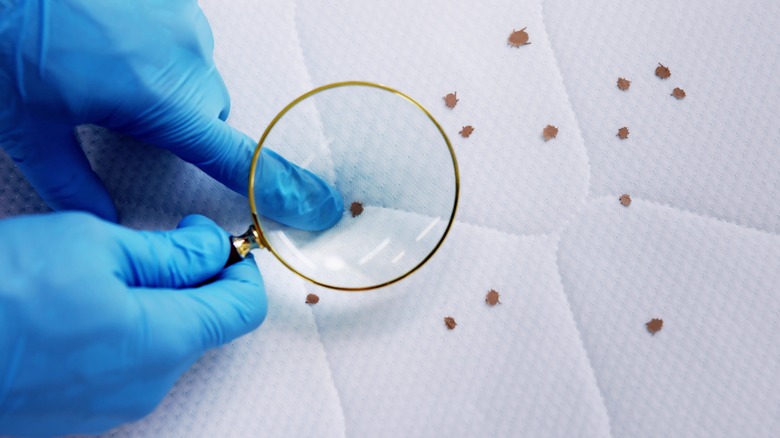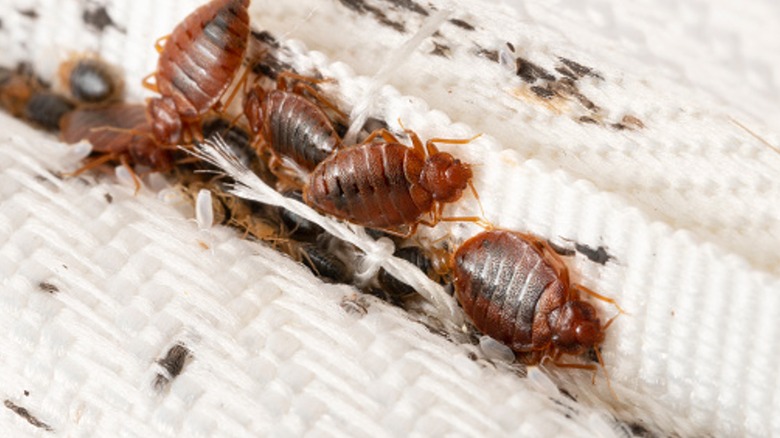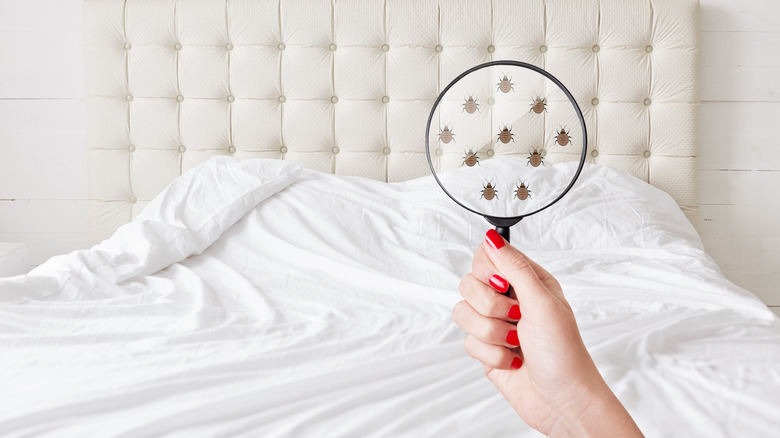Does Poor Hygiene Attract Bed Bugs? Our Entomologist Weighs In
Bed bugs are known to be difficult to eliminate. Once these critters infest a home, it typically takes a professional to remove them for good. To avoid the hassle of getting rid of bed bugs, it's helpful to understand what attracts them in the first place. You might assume that these insects are more drawn to those with poor hygiene. According to Dr. Jim Fredericks, Board Certified Entomologist and Senior Vice President of Public Affairs at the National Pest Management Association (NPMA), bed bugs are not all that particular about their food source.
"Hygiene, good or bad, does not attract bed bugs," Fredericks explained while speaking exclusively to House Digest. "They're drawn to the warm, steady stream of carbon dioxide a person emits while they sleep. Bed bugs aren't picky. In fact, they'll infest just about any environment, regardless of how clean or dirty it is. This includes movie theaters, hotels, public transportation, and medical facilities, among other places." You may also be attracting these insects in ways you don't even realize.
What really attracts bed bugs
While poor hygiene doesn't attract bed bugs, other factors, like frequent travel, can make you more vulnerable to an infestation. Dr. Jim Fredricks revealed that the insects travel faster during the summertime when people are more likely to be vacationing. Travel aside, it turns out that bed bugs are mostly drawn to humans for two reasons. "Bed bugs are primarily attracted to the warmth and carbon dioxide that humans emit, making our homes an ideal environment for them," Fredricks explained in his exclusive talk with House Digest.
Have you ever wondered how these pests attach themselves to humans in the first place? According to Fredricks, they make their way onto personal belongings and clothes. When these items come into contact with an infested surface, bed bugs are able to crawl onto them. Once inside of a living space, the insects don't exactly stay put. "In apartments, condos and hotels, bed bugs can travel by walking from unit to unit," Fredricks shared.
How to avoid an infestation in your home
Although maintaining good hygiene will not necessarily help you avoid bed bugs, there are other preventative measures you can take. "Use protective mattress encasements to prevent bed bugs from infesting your mattress and box spring," Dr. Jim Fredricks explained while speaking exclusively to House Digest. Make a habit of perioidically checking your mattress and box spring for these pests. Consider checking your couch as well. If you purchase second-hand furniture, thoroughly inspect each piece before bringing them into your home.
Search for the critters as soon as you check into a hotel room to ensure you don't bring them back home with you. Finally, keep your home tidy to give the insects limited hiding spots. "Bed bug infestations are difficult to control and populations can grow quickly if left untreated," Fredricks shared. "If you see signs of a bed bug infestation, we highly recommend working with a qualified pest control professional."
If you do have a bed bug infestation in your home, this is where hygiene can really make a difference. "While poor hygiene doesn't attract bed bugs, it can complicate the process of removing them," the expert shared. "Clutter can provide more hiding spots for bed bugs, making it harder to detect and treat the infested area. Therefore, a clean and organized environment makes it easier to manage and eliminate bed bug infestations."


